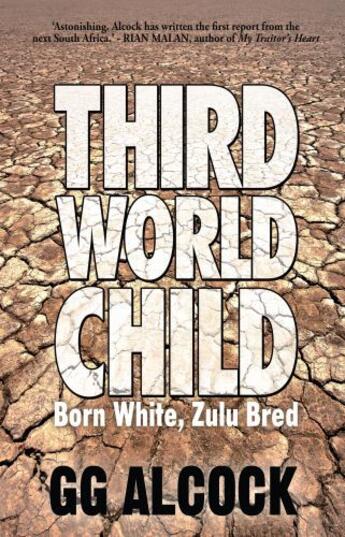Des idées de lecture pour ce début d'année !
Passionné(e) de lecture ? Inscrivez-vous
gratuitement ou connectez-vous pour rejoindre la
communauté et bénéficier de toutes les fonctionnalités du site !

GG Alcock's parents, Creina and Neil, were humanitarians who gave up comfortable lives to move to rural Zululand. In a place called Msinga, a dry rock-strewn wilderness and one of the most violent places in Africa, they lived and worked among the Mchunu and Mthembu tribes, fighting for the rights of people displaced by the apartheid government's policy of 'forced removals'. They also fought against the corruption of police and government officials, as well as local farmers, which did not sit well with their white fellow citizens. When GG was fourteen his father was assassinated by rival tribesmen. GG's early life in rural Zululand in the 1970s and 80s can only be described as unique. He and his brother Khonya, both initially home-schooled by their mother, grew up as Zulu kids, herding goats and playing with the children of their neighbours, learning to speak fluent Zulu, learning to become Zulu men under the guidance of Zulu elders, and learning the customs and history of their adopted tribes. Armed with their father's only legacy - the skills to survive in Africa - both young men were ultimately forced to move into the 'white' world which was largely unknown to them. In many ways GG Alcock's story mirrors that of many of his people, the journey of a tribal society learning to embrace the first world. He does not shy away from the violence and death that coloured his childhood years surrounded by savage faction fighting, nor how they affected his adult life. His story in Third World Child is one of heartbreak and tragedy and, paradoxically, of vibrant hope and compassion. A restless energy and sardonic humour permeate his writing, which is compelling in its honesty and spontaneity.
Il n'y a pas encore de discussion sur ce livre
Soyez le premier à en lancer une !

Des idées de lecture pour ce début d'année !

Si certaines sont impressionnantes et effrayantes, d'autres sont drôles et rassurantes !

A gagner : la BD jeunesse adaptée du classique de Mary Shelley !

Caraïbes, 1492. "Ce sont ceux qui ont posé le pied sur ces terres qui ont amené la barbarie, la torture, la cruauté, la destruction des lieux, la mort..."